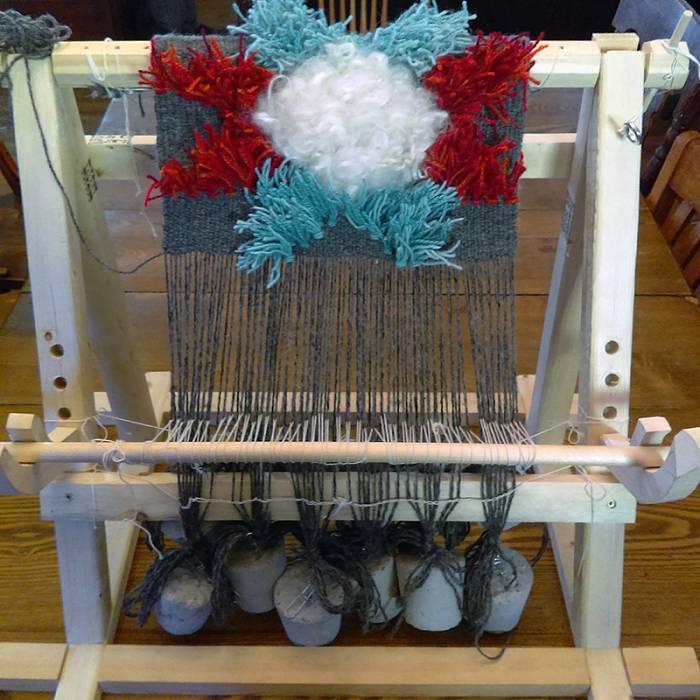
Rya Weaving on Tabletop Warp-Weighted Loom
Course Overview
The rya-style weaving technique can be found in many parts of the world. The knots made when weaving create a long pile which gives pieces a characteristic shaggy appearance. Ryas were particularly popular in Scandinavia and date to the Iron Age. Until sometime in the 19th century they were woven on the historic upright warp-weighted loom which has a history of being a vital tool in everyday life dating back 9,000 years. Instructor Melba Granlund has updated this fascinating tool into a tabletop version better suited to the modern home and habits. In this class students will learn the rya weaving technique as well as how to set up and weave on a tabletop version of the warp-weighted loom. Though crafted in this deeply traditional manner, the finished ryas students will create can be transformed into a shoulder bag, seat cushion, pillow top or wall hanging at home in a modern setting.
During the Viking era, a varafeldur (or shaggy mantel) was a type of rya that was woven in Iceland, worn as a cloak, and used as a trade commodity back to Norway. It was woven with woolen yarn and locks from sheep fleece. In comparison, a boat rya (båtryer) was woven with woolen yarns and used by fisherman in northern Norway as a blanket or covering in the open fishing boats. Other ryas were woven to be used in the home as bedding or rugs.
The instructor will share a variety of examples and reference materials for design inspiration. This course welcomes beginning and experienced weavers alike. Students will need to complete their weaving in class.
In this class students will choose from an array of colors of Swedish and Norwegian wool yarns and fleece locks to weave their project and thereby explore the variations of rya weaving to decide which rya style they like best. Students may also bring fabric strips of their choice to incorporate into their piece.
Physical Ability/Skills Needed
- Weaving may be done either standing or sitting
Materials Fee
- A materials fee of $50 will be payable to instructor.
Required Tools
- Note taking materials
- Graph paper and colored pencils for sketching rya design
- Tapestry beater or kitchen fork with wide-set prongs
- Scissors
- Measuring tape
- Blunt end darning needle
- Plastic zip lock bags to hold short lengths of cut yarn or fleece locks
- Bag to take home finished project
Optional Tools
- Medium-sized crochet hook(s)
- Fabric strips or fleece locks you might wish to incorporate into your piece
- Feel free to bring any other favorite tools and whatever materials you might feel appropriate for this course
